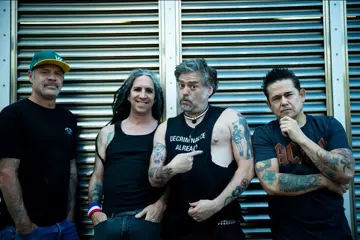Anyone who’s paid even scant attention to the music industry over the last couple of years will be aware that it has been enduring a tumultuous period, scrambling to adapt and keep up with the constant structural changes brought around by the unrelenting advance of technology.
The way that music is both disseminated and consumed is evolving constantly, and while at the end of the day the core role of the artist remains largely unchanged – producing music and giving performances that win the hearts and minds of a (hopefully burgeoning) fanbase – it’s the poor managers and artist representatives behind the glitz of the showbiz curtain who are left to bear the brunt of these seismic shifts.
One of the many illuminating panels at this year’s BIGSOUND conference is sure to be Splitting The Pie: How To Make Sure Everyone Is Paid Fairly. It will look at how quickly the manager’s role is changing and how the established models that have been traditionally used to oversee band economics will need to evolve to better suit the contemporary climate.
“I think it’s going to be a very lively discussion with a bit of crystal ball gazing – or future gazing – about what we see the potential model could be for artists and managers into the future,” explains Catherine Haridy who, as well as overseeing an artist roster including Eskimo Joe, Jebediah and Bob Evans, recently became Executive Director of the Association Of Artist Managers. “We’ll delve into the manager-to-manager aspect as well, how managers can potentially foster their own management model and really grow that in the future based on all the challenges and limitations facing us now.
Don't miss a beat with our FREE daily newsletter
“It’s changed drastically in terms of what’s required from a music manager in 2019 compared to what was required from a music manager when I started, which was a very different landscape externally in terms of the ways that people consume music.
“Accordingly over time we, as music managers, have had to step up and take on a different role with our artists and become much more crucial in the relationship between the artist and the fan, and getting that actual music to the fans.”
Clearly the role of the manager has become more demanding with all of these additional roles and responsibilities.
“The demands on music management now are a hundred times more pressured than they were ten or 15 years ago,” Haridy continues. “The expectation to be able to manage all facets of an artist’s career and the delivery of that music is crucial, so the touch points for a music manager are varied and extensive and the knowledge that a music manager has to amass is absolutely monumental and takes both a lot of professional development and a lot of ‘on-job training’ and a lot of time.”
American independent hip hop entrepreneur Amit Nerurkar – who’s jetting into Brisbane from NYC, where he currently runs artist and album campaign management firm face-less – believes that it’s not more difficult to make money in the current environment, it’s just a matter of broadening one’s horizons.
“I think in a weird way it’s not harder, because we’re looking now at a formal, global marketplace because of the internet,” he offers. “Most people in the US still focus on the US as their primary market – and it still is the biggest market – but that being said you can actually now spread your revenue and get money from Australia, Europe, the UK, South America and even Asia.
“Asia in a way is untapped – even Spotify just went in there – and China might seem to be a difficult market to crack right now, but things are changing quickly and now there’s a lot more access: I could break an artist in Beijing, or break them in Thailand, and that’s another source of revenue.
“What it’s done is given us access and it’s given us more possibilities, so I think it can be easier to make money. Although, having said that, there’s now so much music that comes out and so many musicians, which makes it harder to cut through the noise so you need to be able to navigate that space and make the most of it.”
Melbourne BIGSOUND showcasing artist Darvid Thor has seen the conundrum from numerous angles – being a label manager at Hopestreet Recordings and also handling management duties for his own band The Cactus Channel – and concurs that distributing music online can actually be a double-edged sword.
“The internet means everyone can do it, but obviously it means that it’s really saturated as well,” he reflects. “I guess figuring out where people listen to music now, or where they properly engage with music instead of passively listening, which is a new thing, is important. I don’t know if people are as actively involved with the streaming world as they were: it’s probably a lot more passive listening now.”
As a self-managed artist Thor is all too aware of how stressful working behind the scenes can be.
“Yeah, it’s pretty weird, especially because I also work at the label we’re signed to so I wear that hat as well,” he says. “It’s a weird mix and to be honest I don’t really like it, it seems to put a strain on the creative side as well as the internal relationships within the band. I think in an ideal world I wouldn’t have those dual responsibilities, but I learn lots of things from it and I do also enjoy the gig as well.
“I think it’s important for an artist to build that support system around them – whether it be a manager or a label or whatever – but you’re never going to get that from the get-go so you need to know how to really do it yourself as well.”
Nerurkar agrees that strong management is imperative, especially for an artist trying to maximise profits while minimising risk.
“There are sharks everywhere, and it’s not just a question of protecting your artist, it’s about protecting yourself as well to a large extent,” he reflects. “In terms of getting a good deal, an artist doesn’t know any better a lot of the time, so of course a manager can help, and if you don’t have a good lawyer as well you can get in a lot of trouble.
“You’d think that things would have become a bit more artist-friendly in terms of people getting ripped off in this day and age, but on the flipside I’ve seen some great deals and I’ve seen some terrible deals – that balance is always there – and I’ve heard some real horror stories, so having a good representative behind the scenes remains essential.”
For Haridy it has become increasingly obvious that the traditional model where the manager takes a 20 percent cut of the artist’s income is redundant in this new musical world, it’s just a matter of finding an equitable way forward.
“It’s entirely about adapting,” she offers. “It’s not that things were any better in the past than they are now, it’s just different, and with the change and that movement in every other aspect of that music model, we must consider the model that exists between an artist and their manager.
“I think that at the heart of all this is the fact that with this change in responsibility and demand as a music manager, the old school model that exists between an artist and a manager of that 15 to 20 percent – depending on how the deal was structured – doesn’t really make sense anymore.
“What we’re grappling with is what does make sense now? What works for an artist and what works for a manager, and how can we get to a place where we develop a new way forward? What is that way?
“There’s a lot of questions here and I’m not guaranteeing any answers but I think it’s about a brains trust and putting it out there to our music community and looking for ways that we can make this equitable for both parties in a really meaningful way, because the relationship between an artist and a manager is absolutely crucial to an artist’s success, and within that an artist must feel remunerated and valued.”


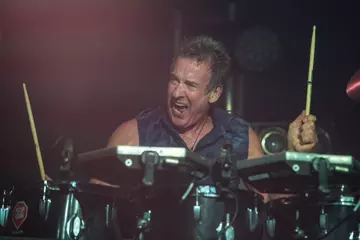
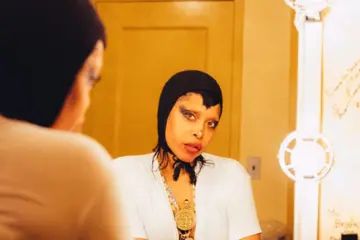
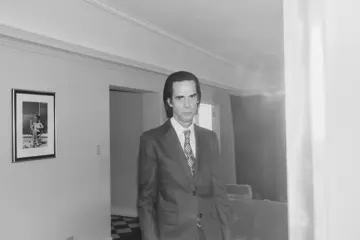


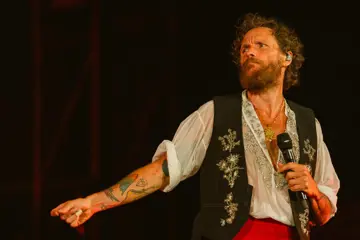


![LT [Leanne Tennant]](https://media.themusic.com.au/images/standard/Artists/L/leanne-tennant/2601-lt-she-is-aphrodite.360x240.webp)




